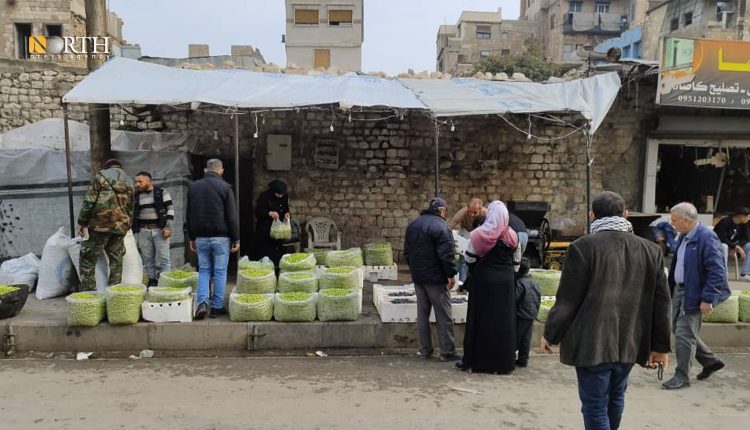Decline in Syrian Olive Oil Quality and Production Raises Concerns
ALEPPO, Syria (North Press) – Olive and olive oil production in Syria has significantly declined in 2024 compared to the previous year, according to a source from the Aleppo Agriculture Chamber of the Syrian government. Despite this, Syrian olive oil remains internationally recognized for its quality.
In a statement to North Press, the source noted that the oxidation rate of oil after pressing ranges between 3% and 9%, indicating a quality decline compared to prior standards.
In October 2024, an official from the Agricultural Scientific Research Authority acknowledged that Syrian olive oil still falls short of international standards set by the World Standards Authority and the International Olive Council. Syria has until 2026 to meet these standards, according to the official.
Statistics from agricultural extension centers show that olive production in government-controlled areas of Aleppo Governorate has reached 33,909 tons this year.
The harvest comes from 57,283 irrigated trees and 3,331,456 rain-fed trees. Processing takes place at 20 oil presses, 15 of which are licensed, while five await licensing.
A trader in Aleppo’s Sayran neighborhood highlighted the absence of olives from Afrin markets in Northwest Syria. He attributed this to the mass uprooting of tens of thousands of olive trees by Turkish-backed armed opposition factions, also known as the Syrian National Army (SNA).
This has significantly impacted production in the region.
The SNA has reportedly imposed royalties on olive press owners during the harvest season. On Tuesday, local sources claimed that the Turkish-backed Sultan Suleiman Shah faction, known as al-Amshat, seized an olive oil press and agricultural land from a resident in Jindires, west of Afrin.
The ongoing conflict and disruptions in Afrin add further obstacles to Syria’s efforts to meet international standards and improve the competitiveness of Syrian olive oil in global markets, the Agriculture Chamber source noted.

